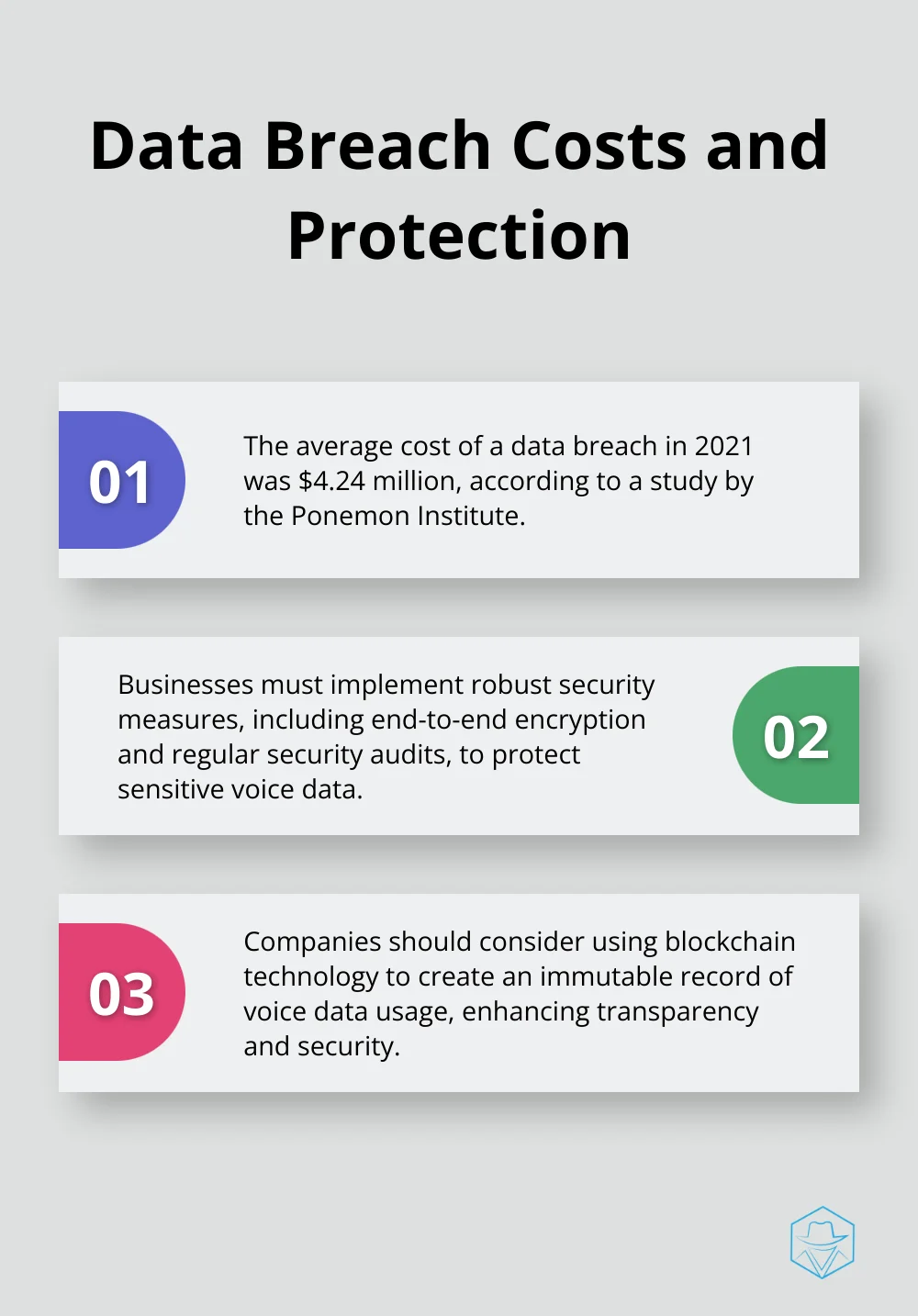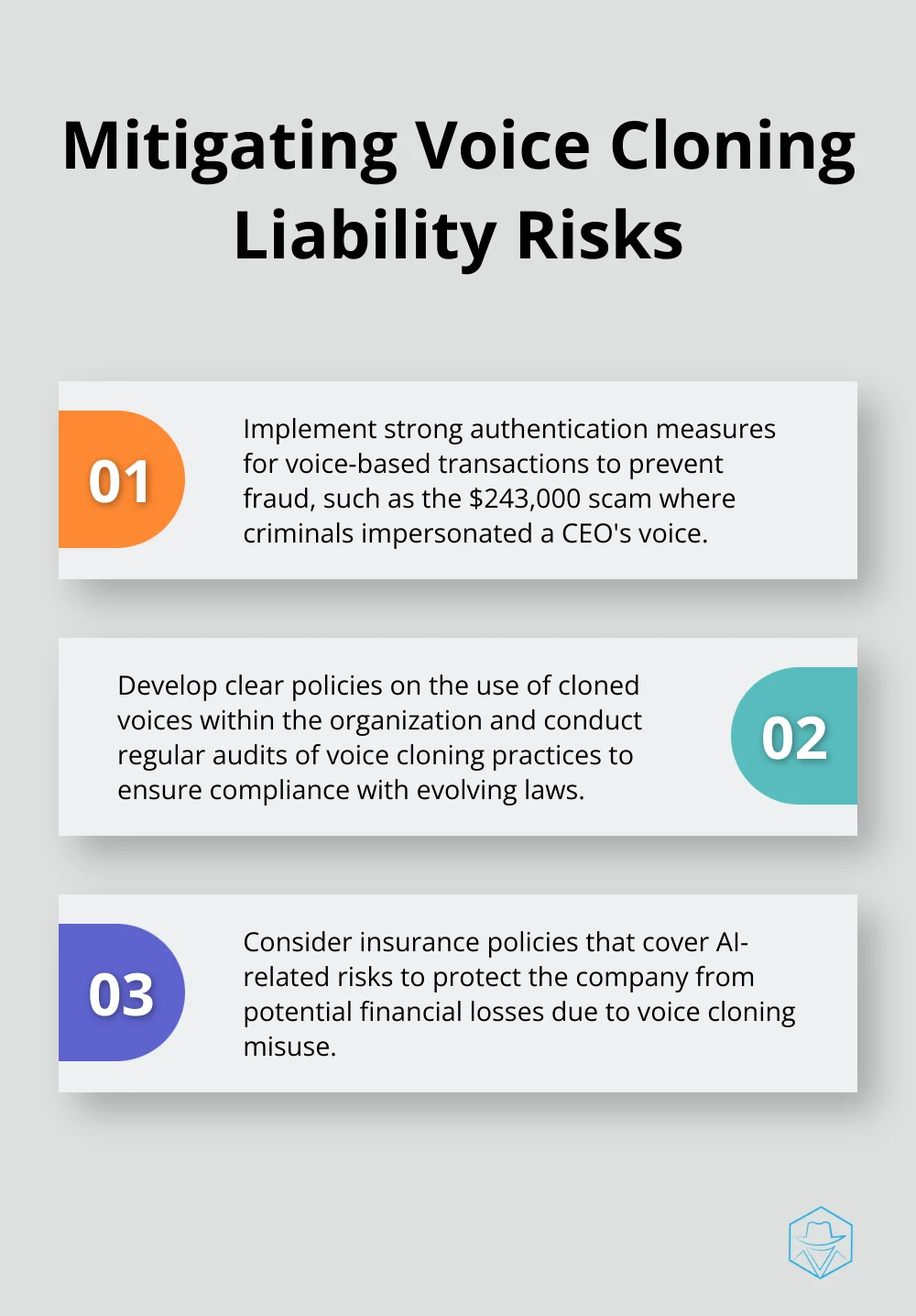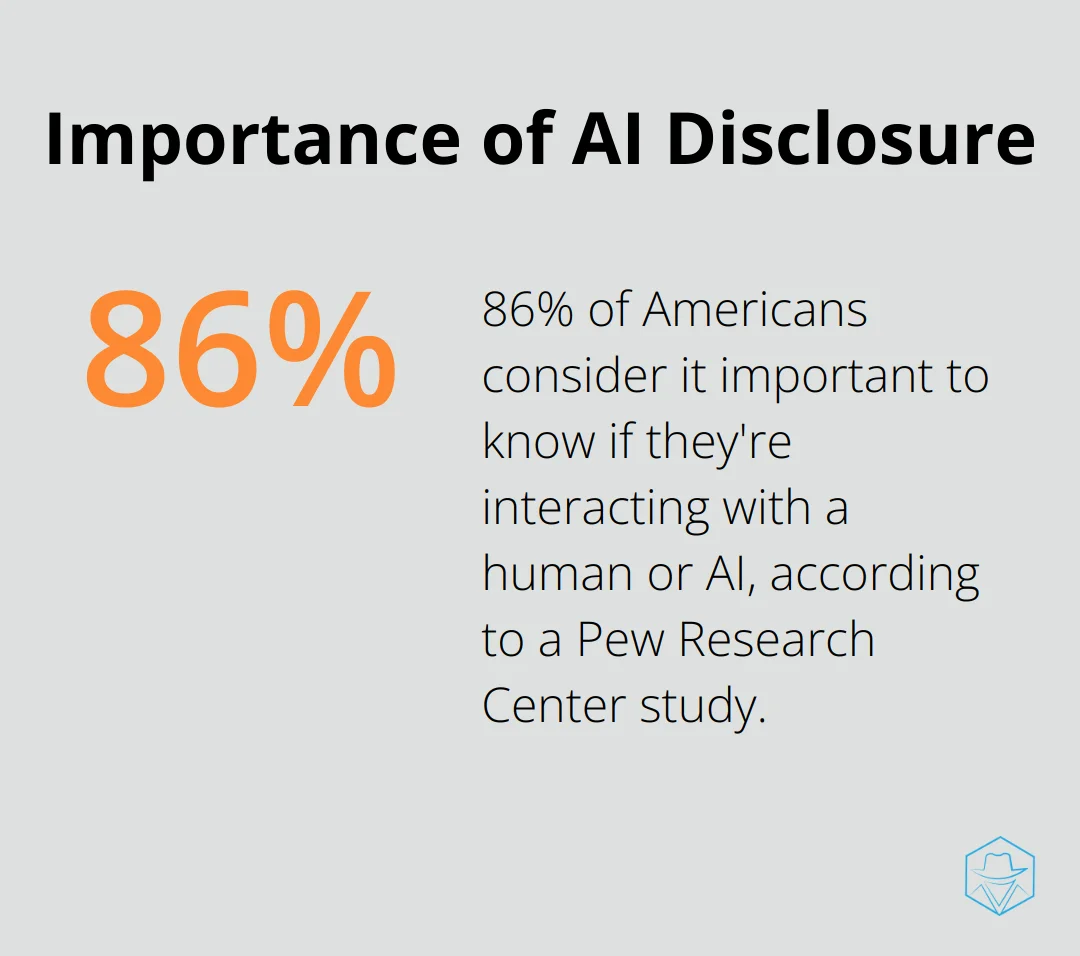The Ethical Considerations of Voice Cloning in Business Communication

Voice cloning technology is revolutionizing business communication, but it comes with a host of ethical challenges. At Drop Cowboy, we recognize the importance of addressing these concerns head-on.
This blog post explores the critical aspects of voice cloning ethics, including privacy issues, legal implications, and the need for transparency with customers. We’ll dive into the responsible use of this powerful technology and its potential impact on the future of business communication.
How Can We Safeguard Voice Data?
Secure Storage of Voice Samples
Voice cloning technology offers unprecedented opportunities for personalized communication, but it also raises significant privacy concerns. The protection of voice data should be a top priority for any business using this technology.
The foundation of voice cloning is the collection and storage of voice samples. These samples contain sensitive biometric data that could be misused if they fall into the wrong hands. Businesses must implement robust security measures to protect this information. This includes the use of end-to-end encryption, regular security audits, and limited access to voice data on a need-to-know basis.
A study by the Ponemon Institute found that the average cost of a data breach in 2021 was $4.24 million. This underscores the financial imperative of investing in strong data protection measures. Companies should also consider the use of blockchain technology to create an immutable record of voice data usage, which enhances transparency and security.

Prevention of Unauthorized Use
The potential for unauthorized use of cloned voices is a serious concern. Imagine a scenario where a cloned voice is used to impersonate a CEO and authorize fraudulent transactions. To mitigate this risk, businesses should implement multi-factor authentication systems that go beyond voice recognition.
One effective approach is the use of a combination of voice biometrics and knowledge-based authentication. This could involve asking the user to repeat a randomly generated phrase, which makes it much harder for bad actors to use pre-recorded or cloned voices maliciously.
Protection of Vocal Identity
An individual’s voice is a unique identifier (much like a fingerprint). The protection of this vocal identity is crucial. We recommend the implementation of a system of consent and revocation, where individuals can easily grant or withdraw permission for their voice to be cloned.
Additionally, businesses should consider the use of watermarking technology for cloned voices. This invisible audio signature can help trace the origin of voice clips, which deters misuse and aids in the identification of unauthorized copies.
Industry-Wide Effort
No single company can solve these challenges alone. It requires a concerted effort from the entire industry to establish and adhere to ethical standards for voice cloning technology. This includes the development of best practices, the creation of industry guidelines, and the promotion of transparency in voice cloning processes.
Compliance with Regulations
As voice cloning technology evolves, so do the regulations surrounding its use. Businesses must stay informed about relevant laws and regulations (such as GDPR in Europe or CCPA in California) and ensure their voice cloning practices comply with these standards. This may involve regular audits, the appointment of data protection officers, and the implementation of privacy-by-design principles in voice cloning systems.
The safeguarding of voice data is a complex challenge that requires a multi-faceted approach. As we move forward, it’s essential to consider the legal implications of voice cloning technology, which we’ll explore in the next section.
Navigating the Legal Landscape of Voice Cloning
Intellectual Property Rights in Voice Cloning
Voice cloning technology presents a complex legal challenge, particularly in the realm of intellectual property rights. The ownership of a cloned voice remains a contentious issue in most jurisdictions. While a person’s voice typically falls under personality rights protection, AI-generated voices blur these legal boundaries.
A recent New York case (Lehrman & Sage v. Lovo, Inc.) highlighted the intricacies of using professional voices to train AI models. This case underscores the need for clear agreements when collecting voice samples for cloning purposes. To protect your business, you should:
- Obtain explicit, written consent from individuals before using their voice for cloning.
- Define the scope of use for cloned voices in contracts clearly.
- Consider licensing agreements that specify royalties or compensation for the use of cloned voices.
Consent and Permission Requirements
Consent forms the foundation of ethical voice cloning. The European Union’s General Data Protection Regulation (GDPR) classifies voice data as biometric information, which requires explicit consent for collection and use. In the United States, laws vary by state, but the trend points towards stricter consent requirements.
To ensure compliance, businesses should:
- Implement a robust consent management system.
- Provide clear, easily understandable information about how voice data will be used.
- Allow individuals to revoke consent at any time and have their data deleted.
Liability Issues and Misuse Prevention
The potential for misuse of cloned voices poses significant risks. Deepfake audio scams have already resulted in substantial financial losses for businesses. In 2019, criminals used AI to impersonate a CEO’s voice, defrauding a UK energy firm of $243,000.
To mitigate liability risks, companies should:

Future Legal Considerations
As voice cloning technology advances, we can expect new legal challenges to emerge. Businesses must stay informed about evolving regulations and adapt their practices accordingly. This proactive approach will help companies navigate the legal landscape of voice cloning while minimizing potential risks and liabilities.
The legal implications of voice cloning technology extend beyond intellectual property and liability concerns. They also intersect with issues of trust and transparency in customer relationships. In the next section, we’ll explore how businesses can maintain customer confidence while leveraging the benefits of voice cloning technology.
How Can Businesses Build Trust with Voice Cloning?
Full Disclosure of AI-Generated Content
At Drop Cowby, we believe honesty forms the foundation of customer trust when using voice cloning technology. We recommend businesses inform customers clearly when they interact with a cloned voice. A brief disclaimer at the call or message start suffices.
A Pew Research Center study revealed 86% of Americans consider it important to know if they’re interacting with a human or AI. Companies can meet this expectation and build trust through upfront disclosure about voice cloning use.

Balancing Personalization and Authenticity
Voice cloning offers unparalleled personalization opportunities, but authenticity remains key. We suggest using cloned voices primarily for routine communications (e.g., appointment reminders or basic customer service inquiries). For complex or sensitive matters, human intervention should remain readily available.
Businesses can implement a tiered system where AI-generated voices handle initial interactions, with smooth escalation to human representatives when needed. This approach ensures personalized service while maintaining the valued human touch.
Empowering Customer Choice
Customer control over AI-generated voice interactions is essential. We recommend an opt-in system where customers choose whether to receive communications via cloned voices. This approach respects customer preferences and builds confidence in voice cloning practices.
Provide easy ways for customers to verify voice communication authenticity. This could include unique verification codes or the option to speak with a human representative at any time.
Regular Audits and Transparency Reports
To further build trust, conduct regular audits of voice cloning practices and publish transparency reports. These reports should detail voice data collection, use, and protection methods. They should also include information on any incidents or breaches, and steps taken to address them.
A KPMG survey found 86% of consumers want more transparency about data use. Businesses can meet this demand and demonstrate commitment to ethical practices by proactively sharing this information.
Employee Training and Ethical Guidelines
Ensure all employees who work with voice cloning technology receive thorough training in its ethical use. Develop clear guidelines that outline acceptable practices and potential misuse scenarios. This internal focus on ethics will translate into more trustworthy customer interactions.
Final Thoughts
Voice cloning ethics will shape the future of business communication. Companies must prioritize data protection, legal compliance, and customer trust to harness this technology responsibly. We at Drop Cowboy offer innovative voice cloning solutions that adhere to strict ethical standards and empower businesses to communicate effectively.
The responsible use of voice cloning technology requires ongoing vigilance and adaptation. Companies should stay informed about emerging regulations and customer expectations to maintain ethical practices. Transparency, consent management, and robust security measures form the foundation of ethical voice cloning implementation.
Businesses that embrace voice cloning technology ethically will gain a competitive edge. They will build stronger customer relationships through personalized, authentic communication while maintaining trust and integrity. The future of AI-driven communication belongs to those who prioritize ethics in their strategies.
blog-dropcowboy-com
Related posts

August 4, 2025
What does it mean when you call someone and it goes straight to voicemail
Discover why calls go straight to voicemail. Explore common reasons and solutions for this frustrating phone issue. Learn what it means and how to fix it.

June 23, 2025
Exploring Sinch RCS: The Future of Messaging
Explore Sinch RCS as we reveal the future of messaging with smarter, richer interactions. Discover its potential to transform communication today.

July 20, 2025
How to Find Software Similar to Trello for Your Team
Explore software similar to Trello for your team. Discover top alternatives that fit your workflow and boost productivity effortlessly.

August 13, 2025
No ring straight to voicemail
Optimize user connections with our ‘No Ring Straight to Voicemail’ feature, improving efficiency and engagement without missed calls.

June 16, 2025
How Much Does EZ Texting Cost? Pricing Explained
Explore EZ Texting pricing, understand costs, and find a plan that fits your texting needs. Get the details you need for smart decision-making.

March 4, 2025
Understanding Text Marketing Laws and Regulations
Navigate text marketing laws effectively. Learn essential guidelines, ensure compliance, and protect your business while communicating through texts.